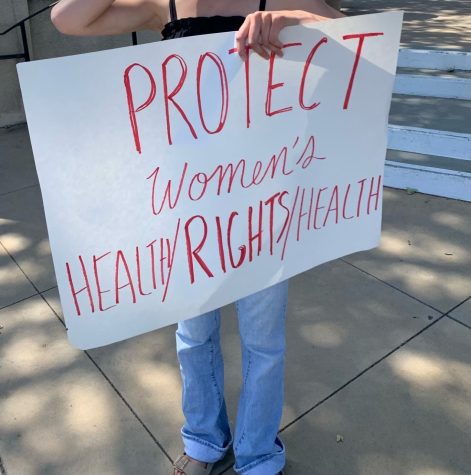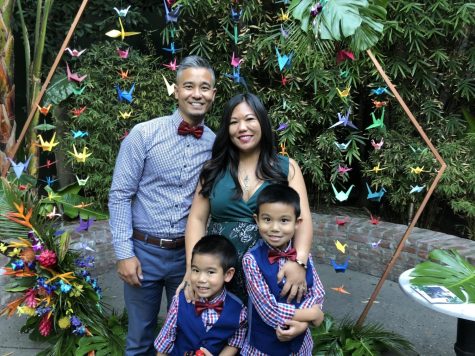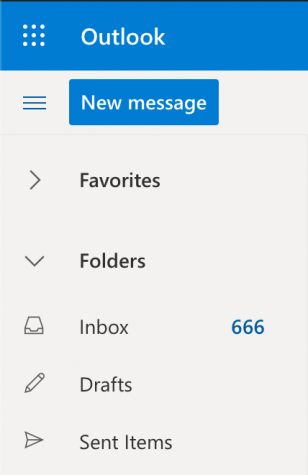Letter to the editor: CUSD Board President Dave Nemer’s response to criticism of new remote learning phase
Dear CHS students,
As a former CHS teacher and a current member of the Claremont School Board, I would like to respond to recent controversy about the educational program that went into effect on April 20. Many disagreements will most likely persist. My goal here is simply to provide explanations and hopefully untangle misunderstandings.
The School Board has received passionate criticism from students since the announcement last week that starting April 20, school work would be required and graded, unless individual circumstances warranted modifications. The negative feedback has been loud and clear. We have been slammed for insensitivity, stupidity, outdated technology, violating bylaws at a board meeting, and other failings. While I believe the criticism is substantially unfair, I will leave it to Superintendent Elsasser to respond to the legal and technological issues. I have nothing to add regarding those topics. I can’t deny being technologically challenged. It is probably age related.
In hopes of addressing the main issues that affect students most directly, I would like to focus on the essential features of the new plan. I think the most important point raised by students is that many are dealing with unprecedented problems now, and some are facing particularly extreme hardships. We share that concern. It is clear that issues related to physical health, mental health, family dynamics, financial security, and technological limitations are all obstacles to learning.
One pertinent question is, will online education from now to June actually make any difference in students’ lives? This doesn’t appear to be a pressing concern to many students. That’s understandable, but the School Board and many CHS teachers are worried about the problems students will have next year if they go into new courses significantly unprepared. To us that is a serious concern.
Another question is, to what extent is effective education viable in the present situation? I think almost everyone would prefer school as it was in early March, but that isn’t an option right now. Online learning is the only option. It isn’t ideal for most students, but it is something, rather than nothing. It can improve students’ prospects.
The problem is that during the weeks of the initial plan, which was only intended for a short shutdown and did not require work, many students essentially dropped out. That’s the core of the dilemma. We needed a new plan. So, while students may disagree with our decision, I hope some will recognize that we’ve been trying to do what we sincerely believe is in the students’ best interest overall, based on the conviction that more education is better than less. This is what we were elected to do.
Now, how can we actually achieve more education in light of the serious obstacles faced by students? Providing an incentive, i.e., requiring work, is part of the answer, whether we like that or not. But we fully understand that making work and grading mandatory right now could actually harm some students if we did not ensure unprecedented sensitivity and flexibility by the graders.
This is where our teachers come in (beyond the massive amount of work involved in converting courses to online learning). Teachers are the crucial linchpin of the new program. Students who are unable to do the required work due to circumstances beyond their control are entitled to accommodations and leniency. This is a key component of the plan, fully supported by CUSD administration and Claremont Faculty Association. I believe many students are comfortable with their teachers, based on my own personal experience at CHS as well as a recent survey that found that 89.3% of Claremont students in grades 7-12 report having “a good relationship with one or more teachers.” I am confident that our teachers will do what’s right in this difficult situation and will make sure students are not harmed. We understand that a few students might be reluctant to request help from teachers. I would like to remind students and families that Principal O’Connor, Assistant Principal Mitchell, and the counselors are also available and willing to help. Everyone wants successful outcomes. Students are not in this alone.
Of course, the plan isn’t perfect and flawless. Nothing is right now, or ever, really. We are trying to make the best of a bad situation for as many students as possible. We would all prefer normal school, but this is the best we can do at this time. Some students won’t really be affected by this plan one way or the other. There are some who were continuing to do work even when it wasn’t required, and there are some who won’t or legitimately can’t do enough work now even though it is required. But there are many in the middle who will learn more for the rest of the school year because of this change. I’m not saying everyone who can work will be happy about the requirement, just that this is the best option overall.
I would like to be able to talk with some of you in person sometime. Maybe something can be arranged when we finally get back to some semblance of normal. In the meantime, I wish you all well as we keep progressing slowly through the crisis. The ubiquitous phrase, “We’re all in this together…” has some truth to it, but it doesn’t recognize how diverse and unequal our individual experiences are. There are differences in the specific challenges we are facing. But I think one important thing we have in common is that we are all trying to get through this as well as we can. My heart goes out to all of you.
Dave Nemer, CUSD School Board President
Hello there! Our goal is to provide relavent, engaging journalism for readers of all ages. Your donation will support the student journalists of the Wolfpacket at Claremont High School, and will allow us to purchase equipment, print our monthly issues, and enter in journalism competitions. We appreciate your consideration!














